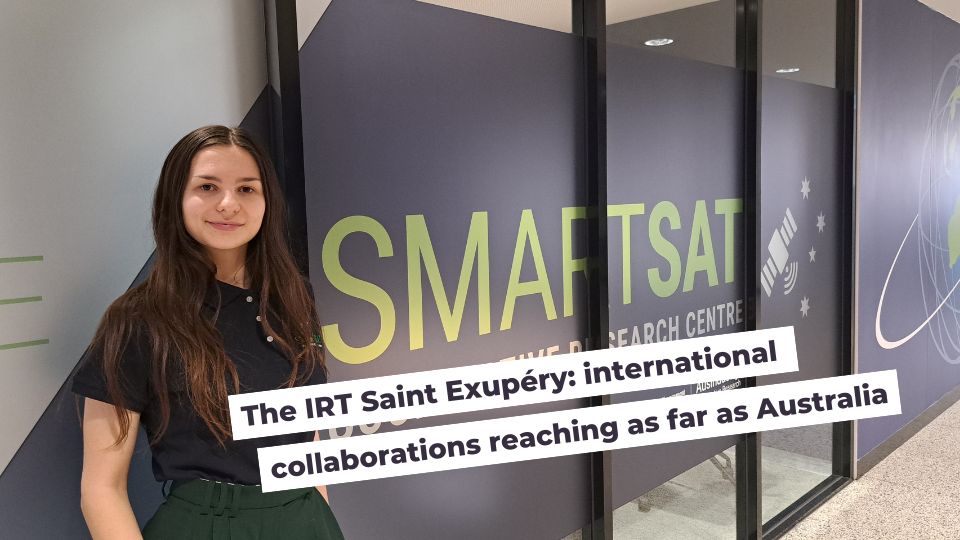Clotilde Szywala, a research engineer at IRT Saint Exupéry working on the IRMA project (AI for Mission Reactivity based on Image Analysis), is currently on secondment at SmartSat CRC in Adelaide, Australia, for a period of about two months. This mobility is part of the broader effort to deploy in-orbit technological solutions developed within the IRMA project.
A 2023 graduate from the National Institute of Applied Sciences (INSA) of Rouen Normandy, where she specialized in modeling and numerical simulations during her final years in applied mathematics, Clotilde joined the Sophia Antipolis site of IRT Saint Exupéry in February 2024. There, she conducts research within the IRMA project as an engineer specializing in Artificial Intelligence (AI) for Earth Observation (EO). Already familiar with IRT Saint Exupéry, she had previously completed a three-month internship in 2022 focused on a state-of-the-art review of AI applied to hyperspectral satellite image processing and on the study of an AI algorithm for hyperspectral image segmentation. Within IRMA, she now contributes to developing an onboard pipeline for detecting marine anomalies, enabling satellites to identify directly from orbit phenomena such as algal blooms or sediment discharges.
The promising IRMA project, led by IRT Saint Exupéry, aims to develop AI-based technological components for satellite mission planning and data processing—both onboard and on the ground—to address the evolving needs of the Earth Observation market. The project brings together industrial and academic partners including Thales Alenia Space, Activeeon, Geo4i, JoliBrain, and Université Côte d’Azur.
This secondment in Australia offers an opportunity to strengthen ties with SmartSat CRC, an Australian “Cooperative Research Center” that closely resembles an IRT: it brings together universities and industry partners around programs funded by the Australian government to develop expertise and technologies in intelligent satellite systems, EO, and Internet of Things (IoT) connectivity. SmartSat notably leads the Kanyini mission, a 6U CubeSat launched in August 2024 dedicated to EO and IoT applications for environmental monitoring, agriculture, and disaster management.
Within this framework, IRMA aims to optimize its anomaly detection pipeline to improve the accuracy of algal bloom detection in coastal areas near Australia. Hyperspectral images acquired by the Kanyini satellite have been retrieved, providing a valuable dataset for tuning the pipeline parameters before deployment on the FlatSat—Kanyini’s ground-based replica used to validate operations before the actual flight. At the same time, images of Australian waters captured by the European Space Agency’s Φsat-2 multispectral imager are being used to refine the version of the pipeline already operating onboard that satellite. Algal blooms represent a major environmental issue in Australia, with a large-scale event observed this year in South Australia serving as a particularly relevant case study.
This first month has also provided an opportunity to present the pipeline to the CSIRO (Commonwealth Scientific and Industrial Research Organisation), the Australian equivalent of France’s CNRS (National Centre for Scientific Research).
This international mobility enhances IRT Saint Exupéry’s global visibility and highlights its commitment to actively engaging in large-scale international research partnerships.


